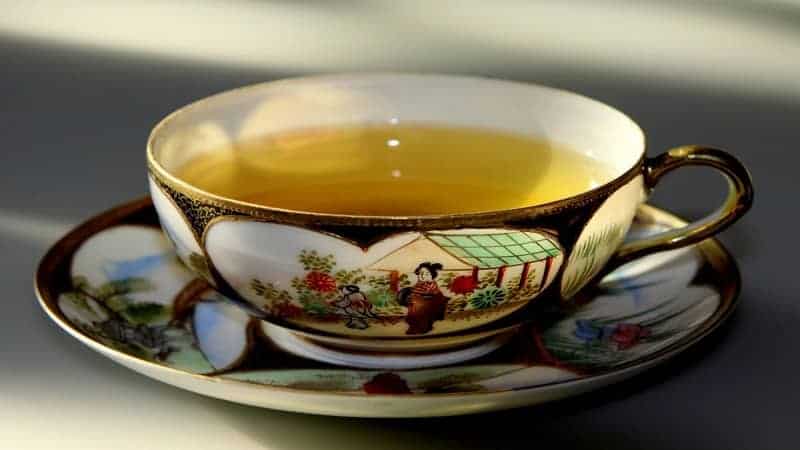If you suffer from asthma, you may want a natural herbal remedy in addition to your prescribed medication so that your asthma symptoms ameliorate.
Herbal concoctions may not cure your asthma. But they could give you the little boost you will be grateful for. Something is better than nothing, right?
And who knows that with multiple herbal blends, the aggregate positive effect could turn out to be substantial.
But which herbal formula will work for you? There is only one way to find out by trying them one by one. All of us are different; hence, , some might react better to a given herbal infusion than others.

But before getting into any of this, please do discuss this with your doctor first.
So let’s get into it. Here are the best herbal teas for asthma.
Licorice Tea
ASIN: B003D4MWIS
The herbal infusion is made with licorice root. This sweet and pleasant tasting tea has been used since ancient times to treat lung conditions such as asthma.
Licorice can make saliva thicker and stimulate increased mucus synthesis. This can coat airways to create a protective effect that could soothe your respiratory tract. This effect can be most helpful if you have a persistent cough that could lead to an asthma attack.
However, there is a caveat to consider. In big doses, the law of diminishing marginal returns kicks in. Too much licorice can raise blood pressure, instigate irregular heartbeat and cause swelling due to licorice’s ability to reduce potassium levels. Hence, licorice tea may not be good for people with high blood pressure.
It’s the dose that makes the poison. Too much of a good thing will invariably be bad.
So please don’t overdose on anything, even if it is herbal.
Ginger Tea
ASIN: B0009F3S7I
In traditional folk remedies worldwide, ginger-based infusions have found extensive use for controlling asthma symptoms.
One reason why ginger tea works for asthma sufferers may be its anti-inflammatory properties that prevent asthma symptoms from flaring up.
Ginger is also great for your tummy. So that may be a welcome added benefit.
Ginger has a myriad of beneficial compounds. Hence, it provides benefits like improved blood sugar control, less nausea and reduced inflammation.
Some research indicates that ginger is useful for alleviating asthma symptoms.
Test tube studies carried out on human cells show various ginger compounds are involved in ameliorating asthma conditions by lessening inflammation in the airways.
Eucaplytus Tea
ASIN: B07M75ZTDZ
It is claimed that eucalyptus has several benefits, including relaxing muscles. Hence, IBS-prone people take eucalyptus to soothe the digestive system.
Due to this ability, you will find herbal remedies for salves and rubs designed to open up airways.
Some find that eucalyptus is antispasmodic; that is, it relaxes muscles, thereby making breathing easier. You can try it on yourself to see if it works.
However, this same effect could backfire if you have an acidity problem. Eucalyptus may relax muscles that must contract to stop the rise of gastric acid from your stomach.
Peppermint tea works using the same basic mechanism. Hence, this remedy may fail if you have acid reflux.
Green Tea
Green tea benefits pretty much all facets of health, it seems. Wherever you see a list of beneficial herbs, chances are that you might find green tea at the top of the list.
Green tea is good for us since it is loaded with a wide spectrum of antioxidants, nutrients and beneficial compounds.
Research indicates that green tea can reduce the risk of certain chronic illnesses. Now there is research to suggest that green tea can help with asthma.
From animal studies, it has been found that green tea is good at reducing lung inflammation. This finding is quite significant since rampant inflammation plays a key role in asthma flare-ups.
Thankfully, human studies also show that green tea may be good for your respiratory tract health. A study on more than 1,000 human subjects discovered that people who regularly consumed at least 2 large cups of green tea (250 ml) each day had noticeably better lung health than those who never drank green tea.
There is also another study to indicate that caffeine has a modest positive effect on your respiratory tract. It promotes the relaxation of muscles in the airways for a few hours. Hence, some caffeine may help to reduce asthma symptoms.
Hence, from this study, one might infer that being a rich source of caffeine, green tea will exert a positive, relaxing effect on your airways and thus relieve some asthma suffering.
For this reason, you may want to consume black tea since it oozes with caffeine. There are other possible benefits to black tea consumption, like reduced risk of diabetes and heart problems.
Mullein Leaf Tea
ASIN: B07H1PYB2L
Mullein tea is an aromatic and fine-tasting blend that is obtained from the mullein plant that grows natively in Africa, Asia and Europe.
Most people may not have heard about it. However, this herb has been used for millennia for the treatment of various respiratory problems like asthma, catarrh and bronchitis.
There are human as well as animal studies to indicate that mullein extract is useful for ameliorating asthma issues like difficulty breathing, wheezing and coughing. One reason why it can do all of this is that it is a strong anti-inflammatory.
Our Final Thoughts
If you were scouring the web for the best herbal teas for asthma, then you have come to the right place.
Various herbal infusions mentioned above may assist your asthma medication. Be sure to first consult with a doctor before using any of these remedies.





















